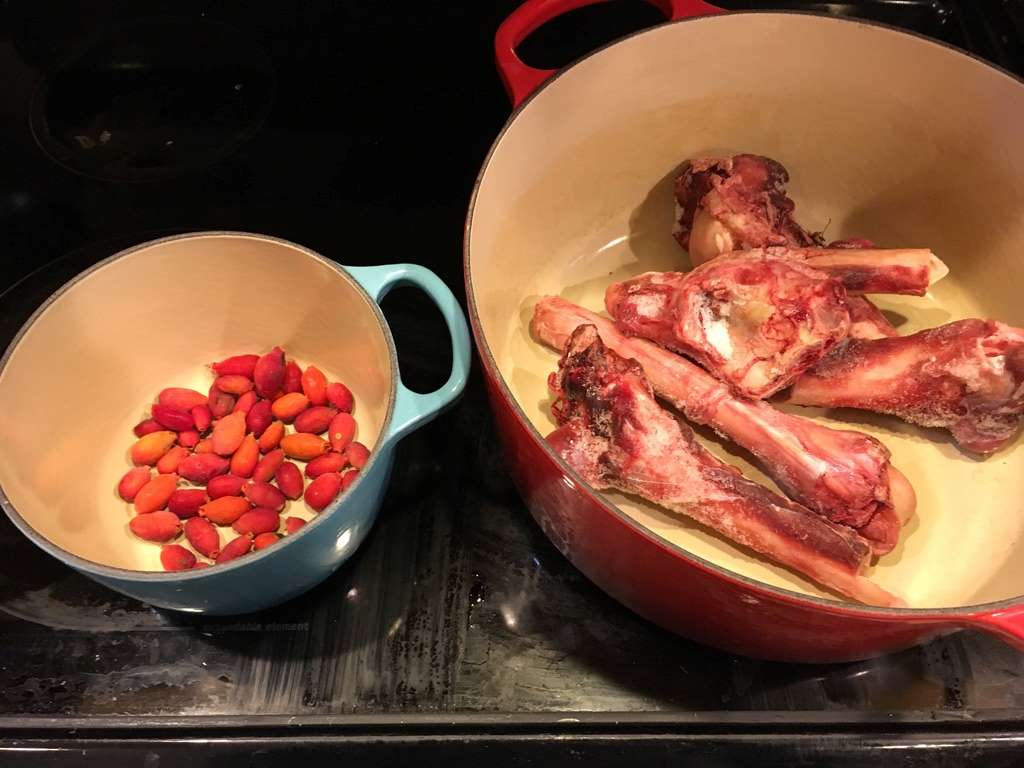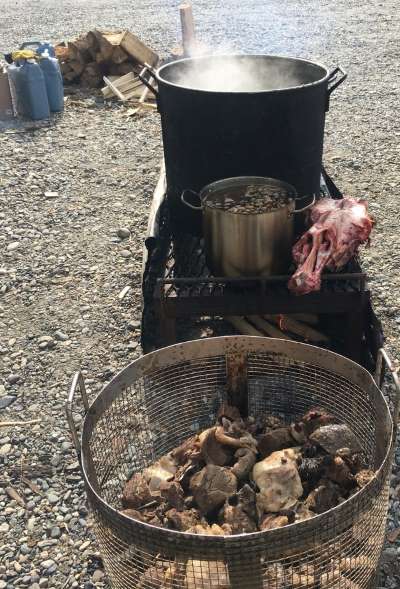A primary focus of the 2020 Alaska Food Festival and Conference was food sovereignty and justice.
As a governing board member of the Alaska Food Policy Council, I helped organize the conference that happened virtually November 6-7, 2020. Although the format removed one aspect of the conference that I always look forward to—tasting a wide variety of local and wild foods—it offered the chance to hear voices from all over the state, country and beyond, all from the comfort of our own homes or offices. The conference kicked off with the film Gather, which focuses on the “. . . growing movement amongst Native Americans to reclaim their spiritual, political and cultural identities through food sovereignty, while battling the trauma of centuries of genocide.” This was co-hosted by Native Movement.
There is a Gather grant opportunity helps address tribal food sovereignty issues.
Simply put, food sovereignty is defined as ensuring that people have the right to sufficient, healthy and culturally appropriate food and that is borne out in hunting, fishing, gathering and agriculture policies. The conference focused in particular on tribal food sovereignty.

Meda Dewitt, Tlingit traditional healer and ethnoherbalist, spoke passionately about the importance of traditional knowledge around plants as a way to heal and improve food security and health in a changing climate. She has been instrumental in offering the Alaska Food as Plants and Medicine Conference. Several speakers spoke about how they managed to include traditional foods (like seal oil, herring eggs, caribou) in their medical facilities and how integral that was for nourishing their Alaska Native patients, especially now, when they are not allowed visitors.
Carolina Behe with the Inuit Circumpolar Council-Alaska spoke with elders and others about what food security and food sovereignty means from an Inuit perspective, some of whom co-authored a report of more than 100 pages on the topic.
Valerie Segrest, with the Native American Agriculture Fund, spoke about how policy and grant programs can help address food sovereignty. I should add that they have awarded 11 grants in Alaska this year and are the leading funder of projects that address needs and issues related to tribal food sovereignty and justice.
In one presentation, I talked about the Tribes Extension Program and how it is well suited to help tribes in Alaska address food security and sovereignty challenges. The program is funded by a federal grant and can also focus on promoting language, traditional knowledge and cultural practices. If you’d like to learn more about the Tribes Extension Program and are interested in possibly starting a program where you live, please complete this short survey.

This moosehead soup was prepared at a traditional potlatch at a culture camp in Nenana. There were many cultural lessons and rituals in the preparation of this soup—from the hunting, to the cutting, to the cooking, to how certain parts of meat were shared and, finally, how it was served at the potlatch.
Several staff from the Aleutian Pribilof Islands Association spoke about their latest efforts related to promoting traditional foods. The project, called Qaqamiigux (to hunt or fish for food and collect plants, or subsistence), seeks to preserve and sustain traditional knowledge centered around food. In addition to a cookbook and Head Start curriculum, they have recently created three films.
Sommer Sibilly-Brown spoke about her efforts in the Virgin Islands, where she founded the Good Food Coalition. Much like Alaska, the Virgin Islands import most of their purchased food. Although she was far away physically, she connected deeply with many of us in the virtual room with her powerful message of what food justice means and is and her efforts to do something about it.
The Alaska Food Policy Council works to address all kinds of issues related to food insecurity and injustice. We welcome new members. The presentations were recorded and many of them will be posted on our website. The Interior Alaska Food Network addresses food policy at a regional level. To stay in the loop, contact Mel Sikes at mel.fswcd@gmail.com to be added to a listserv.
There’s so much more to food than the eating of it and the calories and nutrients in it. The practices of gathering, fishing, hunting, preparing, preserving and sharing food are at the heart of culture and can nourish not only the body, but the mind and spirit as well.
Next week there are two holidays, one is Thanksgiving and one is Native American Heritage Day. This Thanksgiving, we all have an opportunity to think more deeply about what the holiday represents to us and others. Here is a more in depth look at the myths surrounding Thanksgiving.